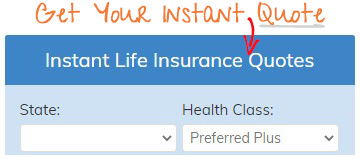In this article, we would like to take a moment to address some of the most common questions we receive from individuals applying for life insurance after being diagnosed with high blood pressure or hypertension.
We will directly answer the following questions:
- Is it possible for me to qualify for life insurance after being diagnosed with high blood pressure or hypertension?
- Why do life insurance companies consider high blood pressure or hypertension a risk factor?
- What information will the insurance company require from me or be interested in?
- What rates or prices am I eligible for?
- How can I obtain the best life insurance policy for myself?
Let’s dive right in without any further delay!
Can I qualify for life insurance after I’ve been diagnosed with high blood pressure or hypertension?
High blood pressure, or hypertension, does not necessarily disqualify you from obtaining life insurance. However, it is a risk factor for heart disease, stroke, and other severe health conditions, and it may affect the terms of your life insurance policy. You see, insurance companies evaluate various factors, including your age, medical history, and lifestyle, when determining life insurance coverage and premiums.
So, if you’ve been diagnosed with hypertension, the insurance company may ask for additional information about your blood pressure readings, any medications you are taking to manage your blood pressure, and any other underlying health conditions you may have.
In general, the higher your blood pressure and the more uncontrolled it is, the more risk you pose to the insurance company, and the higher your premiums may be.
However, if you have hypertension that is well-controlled through medication and lifestyle changes, you may be able to obtain life insurance at a reasonable price. They may even qualify for a Preferred rate, so we often recommend that our clients looking to purchase a traditional term or whole life insurance policy also look at no-medical-exam Life Insurance Policies.
Such an approach might speed up the application process and, hopefully, eliminate the need to submit a blood and urine sample.
Why do life insurance companies care if I’ve been diagnosed with high blood pressure or hypertension?
While it’s safe to say that most life insurance companies aren’t going to be too concerned about the fact that an individual has been diagnosed with hypertension after all, it’s estimated that nearly 75 million adults in the United States suffer from this condition, that doesn’t mean that they are going to “care” about it at all.
This is because hypertension is a risk factor for heart disease, stroke, and other severe health conditions. Conditions that can significantly shorten your life expectancy and increase the risk that the insurance company will have to pay out a death benefit.
Hypertension treatment options:
There are several treatment options for hypertension, including:
- Lifestyle changes: Healthy lifestyle changes can help lower your blood pressure and reduce your risk of severe health problems. These changes may include eating a healthy diet, exercising regularly, quitting smoking, and reducing stress.
- Medications: If lifestyle changes alone cannot control your blood pressure, your doctor may prescribe medications to help lower it. Several types of medications can be used to treat hypertension, including diuretics, beta-blockers, ACE inhibitors, and ARBs.
- Combination therapy: Sometimes, lifestyle changes and medications may be needed to control blood pressure effectively. Your doctor will work with you to determine the best treatment plan for your situation.
That said, however…
Uncontrolled hypertension, or high blood pressure, can lead to several serious complications, including:
- Heart attack: High blood pressure can damage the arteries and increase the risk of a heart attack.
- Stroke: Hypertension can also increase the risk of stroke, which is a severe condition that occurs when the blood supply to the brain is cut off.
- Heart failure: High blood pressure can cause the heart to work harder to pump blood, which can lead to heart failure over time.
- Aneurysm: Hypertension can weaken the walls of the arteries, increasing the risk of an aneurysm, a bulge in an artery that can rupture and cause severe bleeding.
- Kidney damage: Uncontrolled hypertension can damage the kidneys, leading to kidney failure and the need for dialysis or a kidney transplant.
- Eye damage: High blood pressure can damage the blood vessels in the eyes, leading to vision loss or blindness.
Which is why, before being approved for a traditional term or whole life insurance policy, you can expect that you will be asked some questions about your hypertension diagnosis and a few questions about how “serious” your condition might be.
What kind of information will the insurance companies ask me or be interested in?
When you apply for life insurance after being diagnosed with hypertension or high blood pressure, the insurance company will ask for a variety of information about your medical history and current health condition.
Some of the information that they may ask for or be interested in includes:
- Your blood pressure readings: Insurance companies will want to know your blood pressure readings over time, as this will help them determine the severity of your hypertension and how well it’s being managed.
- Your age: Age is crucial in determining your eligibility for life insurance and the premiums you will pay. The older you are, the more likely you are to develop health problems such as hypertension, which can impact your rates.
- Your lifestyle: Insurance companies will also ask about your lifestyle habits, such as smoking, drinking, and physical activity levels. Unhealthy habits such as smoking or heavy drinking can exacerbate hypertension and make it more challenging to obtain affordable life insurance.
- Your medical history: Insurance companies will inquire about your medical history, including any past or current conditions, treatments, and medications you have taken for hypertension or other health issues.
- Your family medical history: Insurance companies may also ask about your family’s medical history, including any hypertension or cardiovascular diseases in close family members, as this can impact your risk profile.
By providing accurate and detailed information about your hypertension and overall health, you can help the insurance company better assess your risk and offer you an appropriate life insurance policy at the best possible rates.
What rate class can I qualify for?
When it comes time to help someone who has been diagnosed with hypertension, there are essentially two categories: one can “fall into.” Some will have their hypertension under control and well-managed, and there will be those who don’t!
For those that have their blood pressure levels are under control, most life insurance companies will typically consider someone like this “potentially” eligible for a Preferred rate, provided they can meet all the remaining requirements for such a rate.
For example:
Preferred Plus
For an individual to qualify for a preferred plus rate class with most life insurance companies, their blood pressure must be under 140/90, and they must not be taking any prescription blood pressure medications.
These individuals haven’t been diagnosed with high blood pressure and are probably maintaining a healthy balance of diet and exercise to sustain nutritional blood pressure values. Good for them!
Preferred health class
When it comes to qualifying for a preferred rating, you’ll generally find that as long as you are under 140/90 with help from medications or 150/90 without medication, you should “theoretically” be eligible for a Preferred rate, assuming that you’ll meet all the other requirements.
Standard health class
Your blood pressure should not exceed 150/90 to qualify for a standard rate while taking medications to control it. However, older clients in their 50s, 50s, and 60s may0s may be lenient regarding these values, provided everything else in their medical records looks good.
Are you not confused yet? Well, let’s see if this does the trick….
So far, in our discussion, we’ve only mentioned three different “health classes,” but there are about 14 different ones without even going into “tobacco” rated life insurance policies.
Which is a good thing…
If your blood pressure doesn’t meet one of the requirements above, that does not necessarily mean you won’t be eligible for coverage; it just implies that you’ll probably be classified as a ” high-risk applicant. “
Which isn’t the end of the world will mean that these folks will need to be much more “selective” with which life insurance companies they choose to apply to. They will want to stick with companies that tend to be more “forgiving” in their pricing for folks who can’t qualify for a Standard or Better rate!
This brings us to the last topic that we wanted to take a moment to discuss here today…
How can I help ensure I get the “best life insurance”?
If you have been diagnosed with hypertension or high blood pressure, there are several things you can do to help ensure that you get the best life insurance coverage for your situation:
- Manage your hypertension: The better your hypertension is managed, the more likely you will qualify for lower rates. Follow your doctor’s recommended treatment plan, take any prescribed medications as directed, and make healthy lifestyle changes, such as eating a balanced diet, exercising regularly, and avoiding smoking and excessive alcohol consumption.
- Shop around: Not all insurance companies are the same, and they may have different underwriting guidelines, rate classes, and policy options. Compare rates and policies from multiple insurers to find the best coverage and rates for your situation.
- Work with a licensed insurance agent: A licensed insurance agent can help you navigate the life insurance application process and provide valuable advice and guidance on the best policies and rates for your needs.
- Be honest and transparent: When applying for life insurance, it’s essential to be open and transparent about your health and medical history, including your hypertension. Failing to disclose relevant information can result in your policy being denied or voided in the future.
- Consider a medical exam: Some life insurance policies require a medical exam to assess an applicant’s health and risk. If you are in good health and your hypertension is well managed, a medical exam may help you qualify for lower rates.
In summary, managing your hypertension, shopping around, working with a licensed insurance agent, being honest and transparent, and considering a medical exam can help you get the best life insurance coverage.



